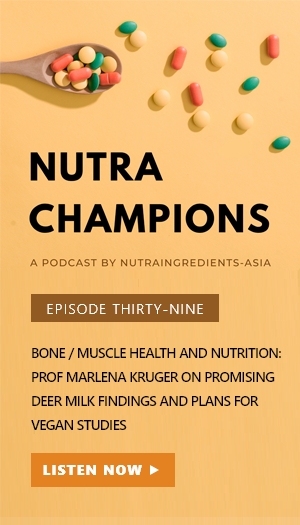Nutrition and dry eye syndrome: Dietary interventions could play a role in managing condition – new data

The symptoms of DES include intense discomfort, sensitivity to light, and poorer vision. DES has become a critical public health issue, as the past decade has seen a 31.7% increase in DES patients in Korea, with women more severely affected than men. Left unmanaged, it can significantly impair daily life.
Researchers analysed data from the 8th Korea National Health and Nutrition Examination Survey (KNHANES VIII) conducted in 2019 by the Korea Centers for Disease Control and Prevention. This study revealed links between specific dietary nutrients and the risk of DES among Korean women aged 40 and above.
In South Korea, where the population is aging rapidly, there has been an increasing focus on health concerns, especially among women over 40.
Emerging research highlights the importance of nutrients such as omega-3 fatty acids, vitamins A and D, and antioxidants, in maintaining eye health.
However, the specific relationship between daily nutrient intake and DES required more exploration.
Therefore, a total of 92,888 female participants listed the amounts of foods and beverages they consumed in the past 24 hours. Their dietary intake was then evaluated for 21 nutrients that included macronutrients, macro- and micro-minerals, and water- and fat-soluble vitamins.
It was found that the intake of these nutrients pointed to a decreased risk of DES: dietary fibre, protein, omega-3 fatty acids, water, calcium, phosphate, potassium, magnesium, vitamin A, vitamin C and vitamin E.
“Our findings reveal that certain nutrients, including fibre, protein, omega-3 fatty acids, water, and vitamins A, C, and E, are associated with a lowered risk of DES,” they wrote.
“Studies have indicated that women with DES have lower blood levels of omega-3 fatty acids compared to those without this condition, supporting the notion that increased intake of these fatty acids correlates with a reduced occurrence of DES among women,” said the researchers.
On the other hand, a higher intake of carbohydrates, sugar, fat, cholesterol, sodium, iron and zinc correlated with an increased risk of DES.
No significant associations were found between the DES and the intake of omega-6 fatty acids and vitamin D.
The study confirms that regular consumption of fruits, vegetables, whole grains, lean proteins, and healthy fats is important for overall eye health. Other foods that are good for the eyes include blue-backed fish, perilla seeds, seaweed, eggs, sweet potatoes, and green and yellow vegetables, as well as strawberries, nuts, and beans.
“However, it is important to note that these observations are preliminary, and further research is necessary to confirm these relationships and explore their implications for dietary recommendations in DES prevention and management,” the researchers concluded.
Source: Nutrients
DOI: 10.3390/nu16030372
“Impact of Dietary Nutrients on the Prevalence of Dry Eye Syndrome among Korean Women Aged 40 and above: Evidence from the Korea National Health and Nutrition Examination Survey. Nutrients.”
Authors: Jeong-Mee Kim, Yean-Jung Choi.
















